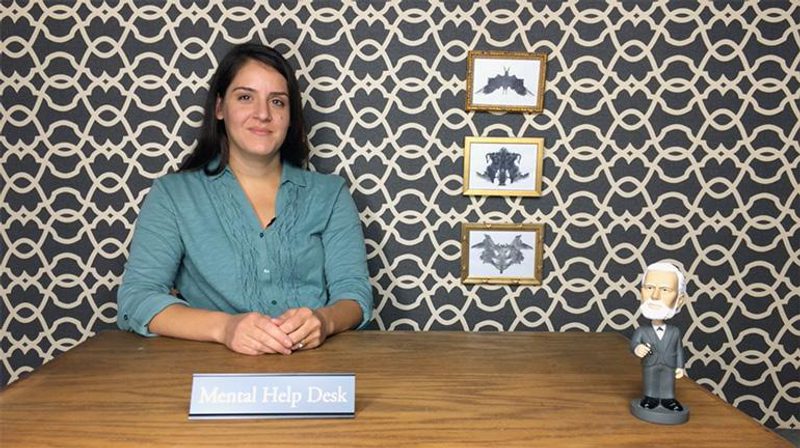Portland Therapy Blog
Local experts share the latest information and resources on all things mental health.
How Children can Recover from Trauma
Posted: October 18, 2014 by [email protected]

Video Transcription
Children have the ability to recover from PTSD despite trauma's damaging effect on the brain.
Hello I am Ruth Exley. I’m a Licensed Clinical Social Worker and today on Mental Help Desk we’ll take a look at the child’s brain after going through a traumatic experience and the potential for recovery from Post Traumatic Stress Disorder.
Neuroscience tells us that a child’s brain functioning and development depend on social experiences which are more powerful than genetics in shaping the brain. Early life experiences play a big role in training the brain to respond well to stress. A child's brain is so socially and environmentally attune during their earliest years that the brain shows incredible plasticity and capacity for growth. Early experiences can set a lifelong blueprint for a child’s emotional and behavioral stability.
So how does the child’s brain respond to traumatic stress?
Well, stress is essentially a normal reaction to feeling overwhelmed or in danger. The brain releases stress-hormones which signal our fight or flight response. Next, the heart speeds up, breathing gets faster, and senses are heightened. Normally the brain naturally copes and can return itself to its natural state. During a traumatic stress, a child may be feeling intense fear or even terror. The brain is overwhelmed with sensory input and certain parts of the brain that naturally regulate emotions become blocked. As a result, the child’s motor output can decline, communication can become difficult and their thinking is slowed. Some kids even experience loss of memory or black-outs. With all the senses in overdrive the brain’s neuropathways become dysregulated and a child experiences a state of we think of as "crisis."
After the traumatic event, naturally children come across reminders of the trauma in their environment such a specific sound or smell or TV and movies that depict the trauma. Before they're aware of it, they become flooded again by a physiological stress response. Children who come across lots of trauma stimuli can feel that the trauma is all-consuming and often say to me that they feel “trapped” in their trauma story. Many times the only coping skill a child can turn to is extreme avoidance of thinking or talking about the trauma in hopes that they will limit themselves from being reminded. Many kids just try to forget it ever happened.
Unfortunately, trauma can have damaging effects on the brain and impact long-term development into adulthood. The right brain is especially sensitive to trauma which is known to control relational attachment, emotional regulation and mood. Studies also sadly show that children who have been traumatized once are at risk for becoming traumatized again in the future.
The good news is that the brain remains flexible throughout life and has the capacity to change. As the brain matures, it continues to produce new neuropathways while old neuropathways die. While the traumatic experience will always be a part of the child's life, with the help of Trauma-Focused therapy and strong attachment figures, children can gradually learn to tolerate difficult feelings and sensations by becoming gradually exposed to their traumatic memories while practicing relaxation skills and learning new ways to view think about the trauma. This is typical in a treatment approach called Trauma Focused - Cognitive Behavioral Therapy. Soon the child can develop a new narrative in which to remember the trauma that’s not so scary to remember.
In my practice, I primarily see children who have been through one or several traumas. I am continually amazed at the resiliency of children and their courage to open up about what scares them most. I am pleased to see that many kids experience full recovery from PTSD. I want to thank Portland Therapy Center for having me on Mental Help Desk and also remind you that working through trauma is possible for every child and it’s never too late to get started.
Tags: relationship and family, anxiety, addiction and behavior, mental help desk
Featured Posts
Love Lessons: A Guide to Dating Someone Who is Codependent
Shame, Guilt, Humiliation, and Embarrassment
Why Do People Have Open Relationships?

